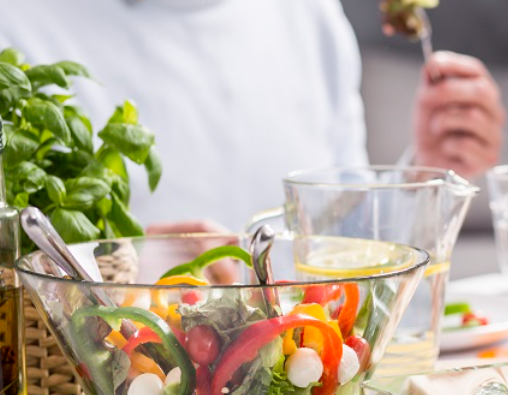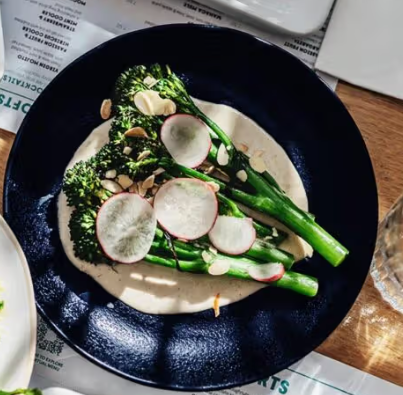
As women reach their 50s, several factors start to influence their health and lifestyle, including changes in metabolism, hormonal fluctuations, and physical transformations often linked to menopause. At this stage, it becomes especially crucial to pay attention to nutrition in order to maintain overall well-being. These changes affect various aspects of life such as bone health, heart health, weight management, mental wellness, and quality of life.
The ideal diet for women over 50 emphasizes nutrient-dense foods, including lean proteins, high-fiber options, and plenty of fruits and vegetables. It’s important to limit saturated fats, added sugars, and sodium, while focusing on hydration and reducing alcohol consumption. Additionally, key nutrients like calcium, vitamin D, and phytoestrogens should be prioritized.
This guide will dive deep into why nutritional needs shift as women age, and how certain dietary changes can promote better health during this stage of life. Whether your goal is weight management, improved energy, or overall health, understanding these adjustments can help you make informed decisions.
Nutritional Needs for Women Over 50
Caloric Needs:
As women age, their calorie requirements often decrease. This is mainly due to a natural decline in physical activity levels and changes in muscle mass. However, the specific amount of calories needed varies based on factors like activity level, weight, and general health.
Macronutrients:
Macronutrients — carbohydrates, proteins, and fats — are the building blocks of nutrition. For women over 50, macronutrient intake should be tailored to individual needs. For instance, active women who exercise regularly may need more carbohydrates to fuel their activity, while those with less physical movement may require fewer carbs.
Micronutrients:
Micronutrients, including vitamins and minerals, are just as important, especially in later years. Women over 50 are prone to certain deficiencies, including vitamin B12, vitamin D, omega-3 fatty acids, calcium, and magnesium. These nutrients are vital for maintaining bone health, supporting the immune system, and managing overall energy levels.
Hydration:
Staying hydrated is crucial, particularly since the risk of dehydration increases as women age. Conditions like kidney disease and type 2 diabetes, more common in older women, can affect hydration levels. Aim for 6-8 glasses of water daily, or more if you’re physically active.
How Many Calories Should Women Over 50 Consume?
A woman’s calorie needs depend on her activity level, muscle mass, and overall health. As a general guide, here’s an estimate based on activity levels:
- Sedentary (little to no exercise): 1400-1600 calories per day for weight loss; 1500-2000 for weight maintenance.
- Moderately active (exercise 3-4 days a week): 1500-1800 for weight loss; 1800-2200 for weight maintenance.
- Very active (5+ days of intense exercise or physical labor): 1800-2000 for weight loss; 2200-2400 for weight maintenance.
Key Components of a Healthy Diet for Women Over 50
To support aging, the following food categories should form the foundation of a balanced diet:
Whole Grains:
Whole grains like oats, quinoa, and brown rice are rich in fiber and essential nutrients that support heart health, digestive function, and the management of blood sugar. Additionally, they help reduce the severity of menopausal symptoms, according to research.
Lean Proteins:
Protein is essential for maintaining muscle mass, which naturally declines with age. Incorporating lean proteins such as fish, chicken, eggs, tofu, and legumes can help preserve muscle mass, which is important for mobility, metabolism, and overall vitality.
Healthy Fats:
Incorporating healthy fats from sources like olive oil, avocados, nuts, and fatty fish (salmon, mackerel) can help manage inflammation, support heart health, and improve brain function. Omega-3 fatty acids, in particular, are critical in reducing the risk of cardiovascular disease, which increases after menopause.
Antioxidants:
Fruits and vegetables, especially those rich in antioxidants like berries, citrus fruits, and leafy greens, help combat oxidative stress that accelerates aging and increases disease risk. Foods like green tea, tomatoes, and peppers are excellent choices for protecting against chronic conditions.
Calcium & Vitamin D:
Maintaining bone density becomes more challenging after menopause due to lower estrogen levels. Calcium and vitamin D are essential for bone health, reducing the risk of osteoporosis and fractures. Women over 50 should aim to consume 1200mg of calcium daily and ensure adequate vitamin D intake through sunlight exposure, fortified foods, or supplements.
Magnesium:
Magnesium supports bone health and sleep quality, both of which can be affected by aging. It also plays a key role in mental health, with deficiencies linked to depression and anxiety.
Supplements for Women Over 50
While a balanced diet should provide most of the necessary nutrients, some women may need supplements due to age-related changes or specific health conditions. Consider consulting a healthcare professional before starting any supplementation.
- Calcium & Vitamin D: These are vital for maintaining bone health and may be necessary in supplement form for women who struggle to get enough through food.
- Magnesium: Supports bone density, mental health, and sleep.
- Omega-3 Fatty Acids: These can help manage inflammation, heart disease, and depression.
- Zinc: Important for immune function and managing oxidative stress.
Best Diets for Women Over 50
When choosing a diet, it’s important to select one that aligns with your goals. Some of the best diets for women over 50 include:
Mediterranean Diet:
This diet emphasizes whole, plant-based foods, healthy fats, and lean proteins like fish and poultry. It has been shown to reduce the risk of chronic diseases like heart disease and cancer, making it a great option for women over 50.
DASH Diet:
The DASH (Dietary Approaches to Stop Hypertension) diet focuses on reducing sodium intake and promoting heart health. It has been proven to reduce blood pressure, which is important as women age and become more prone to hypertension.
High-Protein Diet:
A high-protein diet can help preserve muscle mass, increase satiety, and boost metabolism. Lean proteins from fish, eggs, and legumes can support a healthy weight and reduce the risk of sarcopenia (age-related muscle loss).
Conclusion
Nutrition for women over 50 requires special attention due to hormonal changes, a slowing metabolism, and the risk of chronic diseases. Emphasizing whole grains, lean proteins, healthy fats, and micronutrients like calcium and vitamin D can support health, maintain bone and muscle mass, and prevent the onset of diseases. While every woman’s needs are unique, a balanced diet focused on nutrient-rich foods is essential for promoting overall wellness and longevity.
By making mindful dietary choices, women in their 50s can continue to thrive and enjoy good health for years to come. Always remember to consult with a healthcare provider before making significant changes to your diet or starting new supplements.










